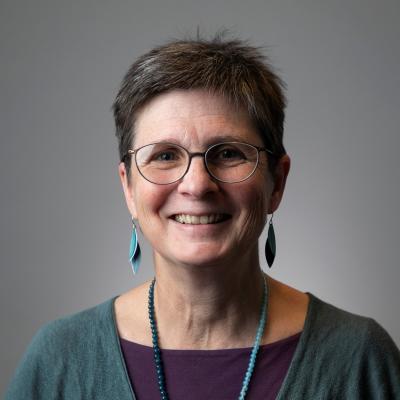We need to talk about health inequalities
22 March 2023

Yesterday saw the launch of the first Health Equals campaign. Health Equals brings together a coalition of organisations working across a range of sectors with the shared goal of a society where each of us has our best chance of good health and wellbeing, no matter who we are or where we are born, work and live. With members from across a range of determinants of health, it clearly shows that creating a healthy society is everyone’s business.
The idea to mobilise cross-sector action on health came from conversations when we first started to scope out our health and inequalities strategy. What became clear was that outside the public health community, there was little understanding of the extent of health inequalities and the factors that cause them.
The pandemic showed, in real time, how our circumstances shape our health outcomes. But post-pandemic, the public’s attention (as far as health is concerned) has largely turned back to the NHS and social care. And given that politicians’ actions are shaped by public concerns, we urgently need to get the public talking about health inequalities.
Using a simple fact – how long someone can be expected to live in different parts of the country – Health Equals has started the #LivesCutShort campaign. It enables anyone to look up life expectancy where they live and shows how it compares with other parts of the country. People are then directed to learn more about the factors that shape their health and are invited to sign up for more information.
This is just a first step. Over time the campaign will build, focusing on specific determinants of health – employment, housing and air quality as a start. It will encourage people to act – to raise concerns with their MPs and councillors, in the workplace and their communities. But highlighting the extent of the inequalities that exist in the UK is a necessary grounding for a longer conversation.
It has been interesting to see how something as simple as sharing life expectancy data can be fraught with difficulties. Some people have asked us, is it right to advertise people’s low life expectancy when they as individuals can do little about it? It reminded me of the patrician view in medicine when I first started work: I heard two consultants discuss the principle of whether a patient should know a cancer diagnosis. Today, it would be unethical not to share this information. Equally campaigners don’t shy away from highlighting other uncomfortable truths – the racism and misogyny that has been uncovered in the Metropolitan police, the shocking levels of air pollution in many parts of our cities or, indeed, the length of waiting times in the NHS.
Rather, we recognise that by starting with individual stories and experiences we can build the wider public concern and commitment needed to secure action. And so too, with health inequalities we need to convey some uncomfortable truths if we want all parts of society to play their role.
The other challenge we have faced is how we can assemble data that are robust and meaningful to the public. Life expectancy, as any expert knows, is a complicated statistic: it averages data, it is located in places rather than people, it is telling the story of what has happened rather than what is going to happen. It is calculated along lines of administrative boundaries rather than places that people (or politicians) may easily identify. And across the UK data is collected differently, making UK-wide comparisons tricky. So, communicating life expectancy, and how is varies around the country, to the public is not straightforward. In developing the campaign we have had to adapt existing sources to make comparisons across places and countries. It raises the question – why don’t we have such important data more readily available in a way that the public can understand?
The initial launch of the campaign has gone well; it has piqued interest in quarters we haven’t previously reached. Over the next fortnight there will be further waves of targeted social media. People may be surprised by what they find about life expectancy in their area but hopefully this will get them talking about health inequalities.
Jo Bibby (@JoBibbyTHF) is Director of Health at the Health Foundation.
Further reading
Work with us
We look for talented and passionate individuals as everyone at the Health Foundation has an important role to play.
View current vacanciesThe Q community
Q is an initiative connecting people with improvement expertise across the UK.
Find out more

